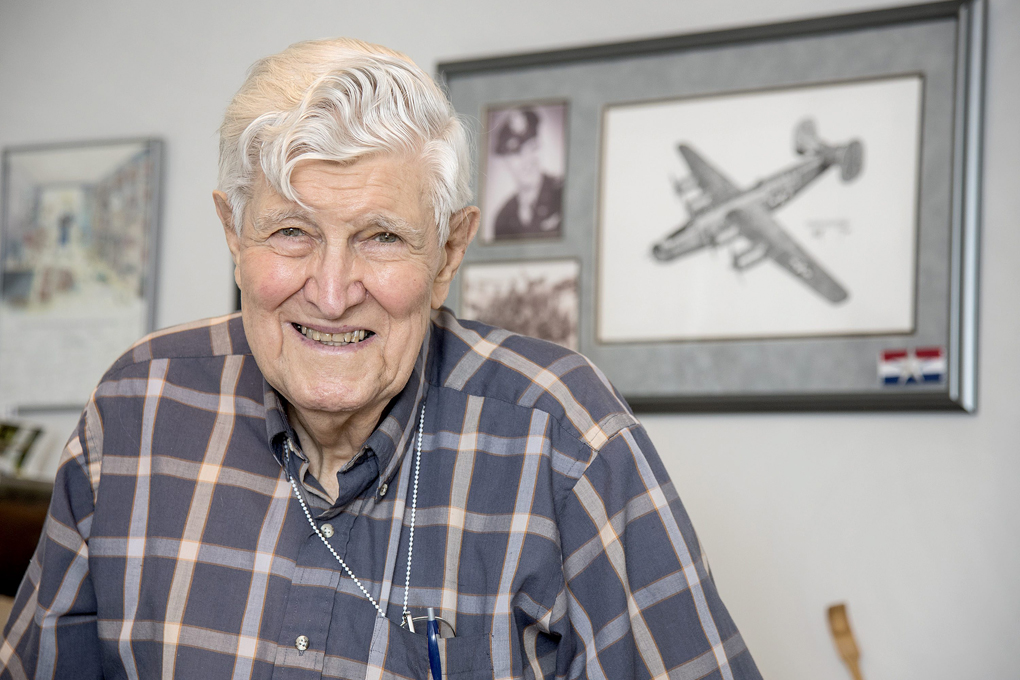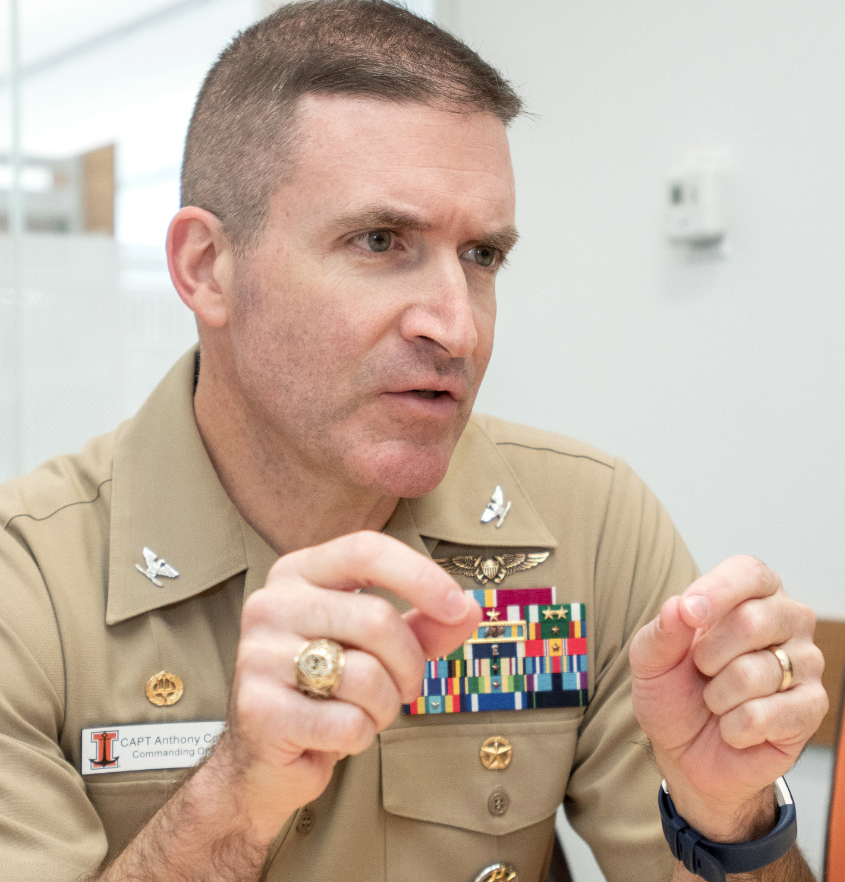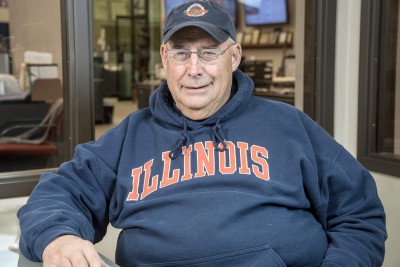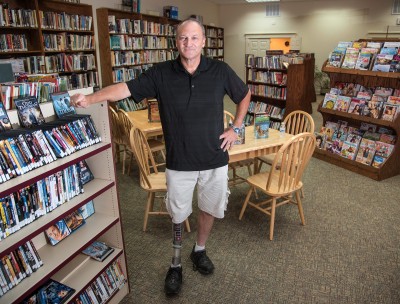Tom Yancey
By Paul Wood

Photo By Rick Danzl/The News-Gazette
SAVOY — Serving as bombardier on a B-24 Liberator over Germany, Tom Yancey ran into a lot of flak.
Not harsh words, but anti-aircraft fire, punching holes in the bomber during the end of World War II.
“The flak zinged through the airplane,” he said, filling it with holes.
By 1945, Yancey said, German air forces were greatly reduced, and P-51 fighters could handle most of them, with outstanding work by the Tuskegee Airmen.
Nobody on his crew was killed in those eight missions, but the flak “made the trips interesting.”
After continuing to serve in the Reserves until 60, Yancey, now 95, left as a lieutenant colonel and served a distinguished career as a University of Illinois professor.
It was a long ride from growing up on a Missouri farm near a town “smaller than Tolono,” graduating from high school in 1940. He attended a commercial college that has since gone out of business.
Joining the Army Air Corps, as it was then called, Yancey was too tall — at 6-foot-1 — to be a gunner.
“They put me on KP,” he recalled.
KP is an unenviable duty, “kitchen police” or “kitchen patrol,” assisting the kitchen staff, such as peeling potatoes.
But he was able to get on as an aviation cadet, and after being qualified in Nashville, he was given his choice of assignment.
He asked which one led most quickly to being commissioned as an officer. It turned out to be a bombardier, who not only dropped bombs but took control of the plane at a critical stage.
Crews were split up by the letters of their last names, and as a “Y,” Yancey did not make the first crew.
Which was lucky.
“That crew was shot down on its first run,” and ended up in a German prison camp, Yancey said.
They all survived, and later one of the men who’d been imprisoned went to a great deal of trouble to reunite the flyboys, finding Yancey through a distant cousin who was also a professor.
Yancey had a long trip to the war itself: Kansas to Massachusetts to Bermuda to the Azores to North Africa to southern Italy.
He was stationed at an Italian air base when the country was in the Axis with Germany, and now the Americans were their friends.
In the 98th Bomber Group, Yancey was assigned to bomb industrial sites, railroad marshaling yards and German airfields in Hungary, Yugoslavia, Austria and southern Germany.
As lead bombardier, he looked through his Norden bombsight, and at the IP, the initial point, took control of his flight group.
It was precision work; an error could have killed a lot of men.
While working the sight’s controls, “you don’t turn that knob, you breathe on it,” he said.
The missions took about 10 hours. He said a B-24 was faster than a B-17, and carried more bombs.
After Hitler’s suicide, Yancey returned to the U.S. on an ocean liner, and the War Department began its plan to move more planes and ships to Japan.
Yancey is grateful the war ended before he was sent to the Pacific, because he believes the last stand by the Japanese would have been “brutal.”
Partly on money from the GI Bill, Yancey earned two degrees from the University of Missouri, and taught at Knox College.
He then earned a doctorate at the UI.
“I was the one they kept,” he said, starting a long career as an economics professor.
He and wife Catherine have stayed here, in Savoy, and he still volunteers, including helping people with their taxes through an AARP program.
Do you know a veteran who could share a story about military service? Contact Paul Wood at pwood@news-gazette.com.
Read more stories from local veterans:
 Anthony Corapi
CHAMPAIGN — Flying around the world as a Navy navigator, Capt. Anthony Corapi picked up technical and leadership skills. …
Anthony Corapi
CHAMPAIGN — Flying around the world as a Navy navigator, Capt. Anthony Corapi picked up technical and leadership skills. …
 Larry Martin
CHAMPAIGN — Master Sgt. Larry Martin was stationed 1,500 meters from the demilitarized zone and North Vietnam in an arti …
Larry Martin
CHAMPAIGN — Master Sgt. Larry Martin was stationed 1,500 meters from the demilitarized zone and North Vietnam in an arti …
 Doug Robinson
SIDNEY — Back when Jimmy Carter was president, Doug Robinson had newly enlisted in the Navy, and was on a ship 3 miles o …
Doug Robinson
SIDNEY — Back when Jimmy Carter was president, Doug Robinson had newly enlisted in the Navy, and was on a ship 3 miles o …